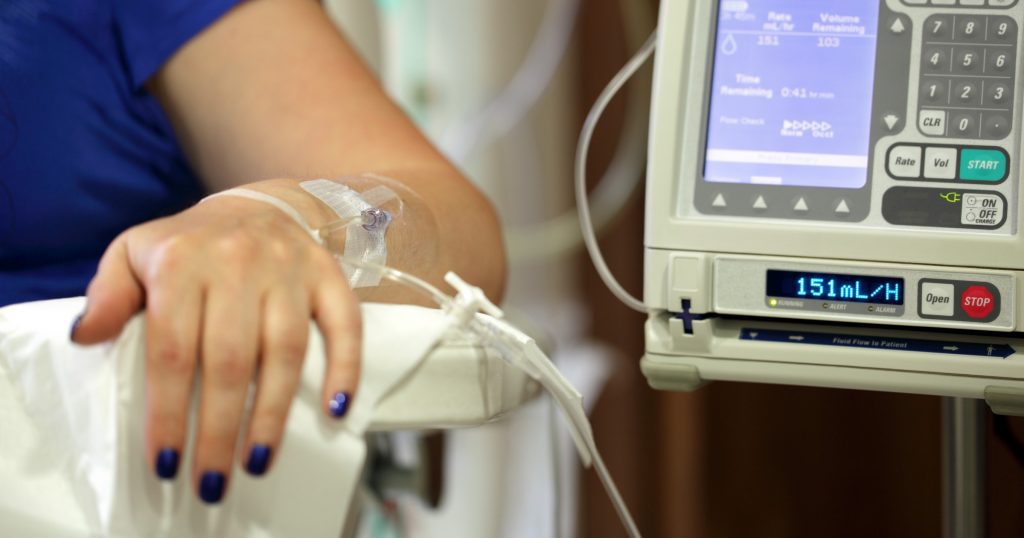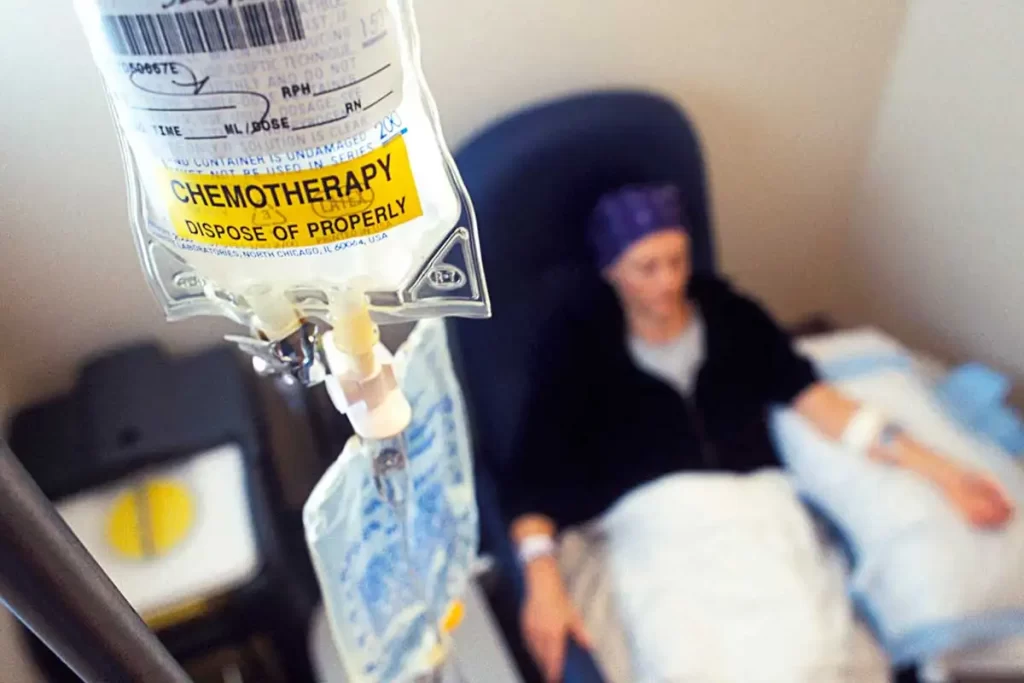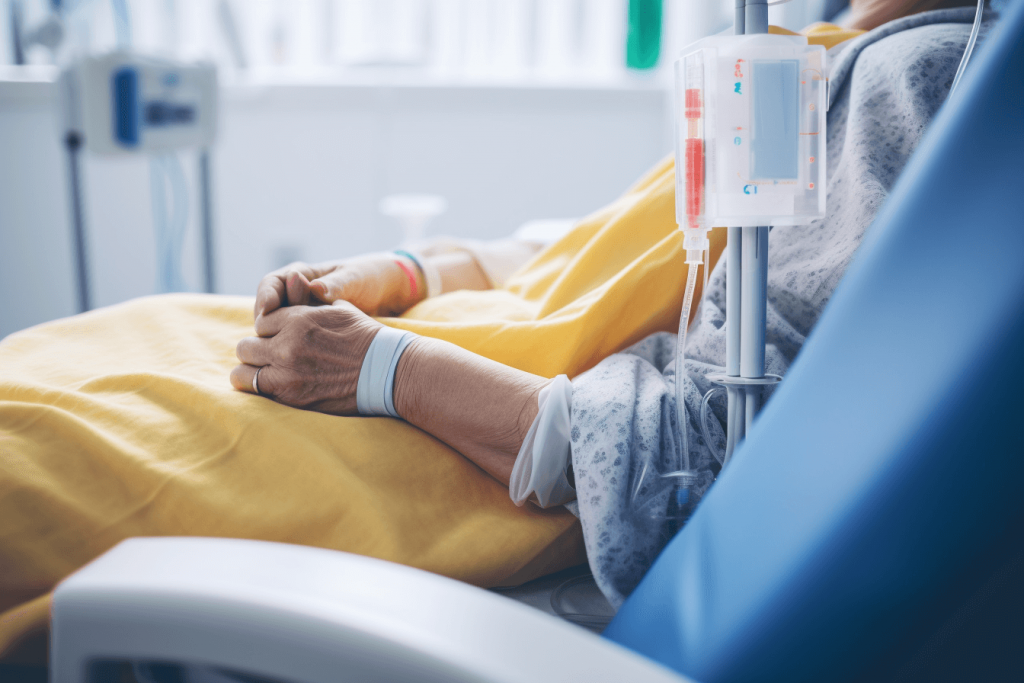What is Palliative Chemotherapy
Published on 17 Jun 2022

People often consider palliative chemotherapy as end-of-life care for patients with terminal cancer. But you might not be aware that one can receive palliative treatment along with curative treatment or at any other point of treatment.
Doctors recommend chemotherapy for two reasons. One is to treat cancer so that it won't reoccur. On the other hand, the other reason is to shrink the tumours and increase the quality of life. The second reason is the goal of palliative chemotherapy.

Also Read: Pre & Post Chemotherapy
What is palliative chemotherapy?
Cancer is the uncontrollable and abnormal growth of cells in our body. Chemotherapy uses chemicals to target and kill the fast-growing cancer cells. As said earlier, chemotherapy is to treat and stop cancer from recurring. In this case, you will completely get rid of this disease by destroying all the cancer cells. But, chemo can also be given to shrink the tumours as well. If cancer has metastasized in your body, chemo cannot cure cancer in such cases. But it can help reduce the symptoms, improve the quality of life, and might help one to live longer. Even its name suggests that it is not a cure but only palliative. It is meant to help cancer patients cope with cancer in their very last days.
Response rate
Response rate suggests the probability of cancer responding to the treatment. Let's understand it with an example. If your doctor says that your response rate is 40 per cent, it means that 40 out of 100 patients will have their tumours shrink by more than half of their size. However, the response rate may also mean that the tumour didn't grow in place of shrinking. Your oncologists can tell what they may mean by the response rate.
How can palliative chemotherapy help you?
Every treatment has its positive and negative points. No treatment is free of side effects. It is difficult to decide whether one should undergo palliative chemotherapy. Even doctors are a bit confused taking this decision. They sometimes give this treatment to someone who has very little time left, and the situation can worsen for that person. On the other hand, they may not prescribe this to a person who might benefit from it.
Before choosing palliative chemotherapy, one needs to consider a few things. You need to know the response rate, life expectancy, symptoms, and possible side effects. For example, if the side effects increase, the quality of life will reduce. This clashes with the goal of palliative chemo. In this case, you shouldn't opt for this treatment.
Another thing to consider is the response rate. If you have a high response rate, you can draw more benefits from palliative treatment.
Let us talk about the pros or possible positive outcomes of this treatment. The patient can have an improved quality of life. The symptoms may reduce, and one may feel less pain. It may prolong the expected life of the patients. On the hind side, palliative chemo might have little difference for the patients. The side effects may make it hard for the patients to continue getting this treatment.
Possible side effects
Every patient reacts differently to chemo, and hence side effects can vary from being minimal to severe. Even after so much improvement, chemo has many side effects. So, you need to talk to your specialist to get a better idea about the possible side effects. Some of the side effects can be loss of hair, diarrhoea, fatigue, nausea or vomiting, constipation, bruises, etc.

Also Read: Chemotherapy At Home For Cancer Patients
Types of cancers using palliative chemotherapy
One can be prescribed palliative chemotreatment for several types of cancer. Doctors look at the stage of cancer rather than the type of cancer before opting for this treatment. Type of cancer does play a role in choosing the type of chemo drugs. But, certain cancers show more benefits than the others like pancreatic cancer, non-small lung cancer, and breast cancer.
In the case of pancreatic cancer, palliative chemo can help cope with pain, improve function, and increase life expectancy. It also reduces or slows down symptoms like loss of appetite, and constipation. This treatment also helps in non-small lung cancer because it relieves pain, and improves dyspnea and cough. While in breast cancer patients, it reduces fatigue and improves the quality of life. Palliative chemo can be helpful in many other types of cancer. More research needs to be done to find the possible benefits of this treatment.
What should you ask your doctor?
You should not hesitate to ask questions from your doctor. After all, it is your body, and you should know all the information about it. Don't be afraid to get a second opinion, if you are in doubt or feel that the doctor might not give you honest answers. You should be aware of your situation and all the treatment options available. The questions you can ask are: What is the response rate of my cancer? What would be the duration of the treatment? What are the possible side effects?
So, be frank and clarify your every doubt with your specialist. Ask about the treatment plan and goals, and also tell them about your expectations.
How long should you continue your treatment?
The traditional method is to wait for one or two complete courses of treatment (usually 3-4 weeks) before assessing the response to cancer. If cancer responds to treatment, your doctor may recommend that you continue chemotherapy until the cancer stops growing or the treatment causes unbearable side effects.

Summing up
Palliative treatment can help you cope with pain and alleviate the other symptoms. Palliative chemo is one such treatment that aims to improve the quality of life of cancer patients. There are both advantages and disadvantages of this treatment. You should talk to your oncologist to ensure that this treatment is the best option for you. If you are in doubt, you should not hesitate to seek a second opinion to clarify your confusion.
Elevate your Journey with Enhanced Immunity & Well-being
For personalized guidance on cancer treatments and complementary therapies, consult our experts atZenOnco.ioor call+91 9930709000
Reference:
-
Neugut AI, Prigerson HG. Curative, Life-Extending, and Palliative Chemotherapy: New Outcomes Need New Names. Oncologist. 2017 Aug;22(8):883-885. doi: 10.1634/theoncologist.2017-0041. Epub 2017 May 26. PMID: 28550031; PMCID: PMC5553954.
-
George LS, Prigerson HG, Epstein AS, Richards KL, Shen MJ, Derry HM, Reyna VF, Shah MA, Maciejewski PK. Palliative Chemotherapy or Radiation and Prognostic Understanding among Advanced Cancer Patients: The Role of Perceived Treatment Intent. J Palliat Med. 2020 Jan;23(1):33-39. doi: 10.1089/jpm.2018.0651. Epub 2019 Oct 8. PMID: 31580753; PMCID: PMC6931912.





















